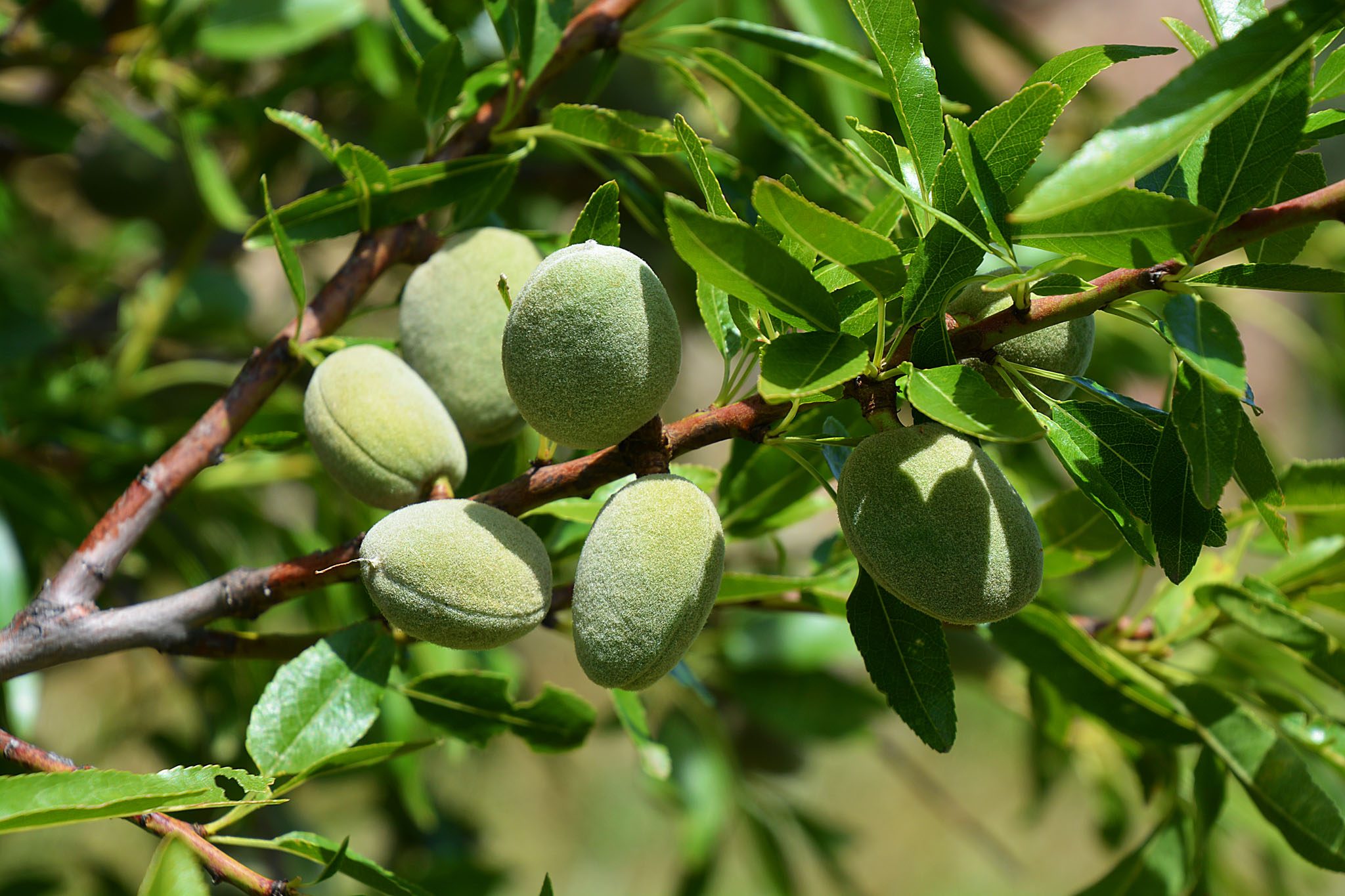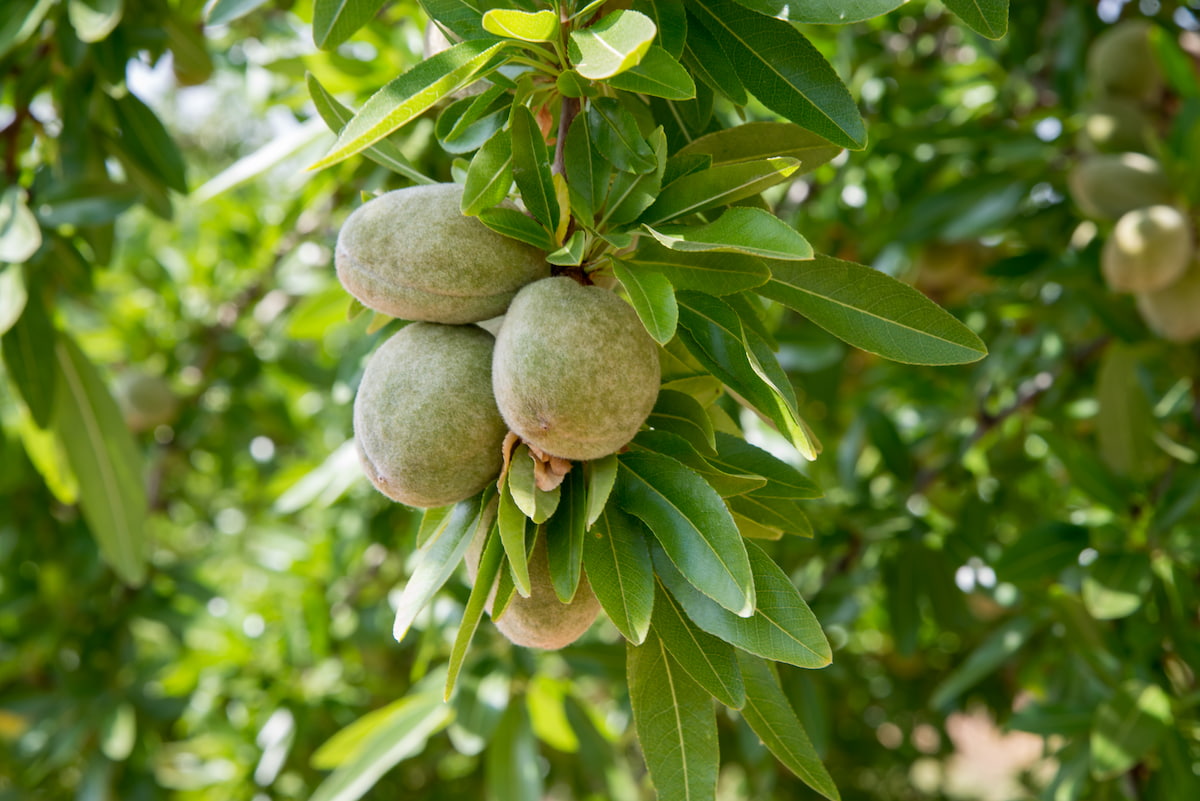Atulya Vanam's Mighty Nutrient-Rich Almond Tree: A Comprehensive Exploration of its Healing Potential
The Almond tree (Prunus dulcis), renowned for its nutritious nuts, extends its benefits beyond its prized kernels. From leaves to fruit, bark, roots, and flowers, the Almond tree offers a treasure trove of therapeutic uses across various medical systems.
In this comprehensive blog, we delve into the versatile applications of the Almond tree in Modern Medicine, Ayurveda, Unani, Homeopathy, Siddha, and more. Additionally, we explore the diverse varieties of almonds available in India.
Medicinal Value
Modern Medicine:
- Almond Nuts: Almonds are packed with nutrients, including healthy fats, proteins, and antioxidants, supporting heart health and overall well-being.
- Almond Oil: Almond oil is used in skincare products for its moisturizing and emollient properties.
Ayurveda:
- Almond Nuts: Ayurveda values almonds for their sweet taste and cooling properties, beneficial for balancing pitta dosha.
- Almond Milk: Almond milk is considered a nourishing beverage, supporting digestion and vitality.
Unani:
Almond Nuts: Unani recognizes almonds as a nutrient-rich food, contributing to energy and vitality.
Homeopathy:
Almond: Almonds may find their place in homeopathic preparations targeting specific symptoms or health concerns.
Siddha:
Almond Nuts: In Siddha medicine, almonds are believed to enhance cognitive function and provide overall nourishment.
General Uses
- Culinary Marvel: Almonds are used as a versatile ingredient in various culinary creations, from sweets to savory dishes.
- Skincare: Almond oil is utilized in skincare routines for its potential to moisturize, soften, and improve skin texture.
- Haircare: Almond oil’s nourishing properties make it a popular choice in haircare products to promote healthy hair.
- Nutrient-Rich Snack: Almonds are consumed as a nutrient-dense snack, promoting satiety and energy.
Varieties of Almonds in India
- Sweet Almonds: Commonly cultivated, sweet almonds are consumed raw, roasted, or processed into products like almond butter and almond milk.
- Bitter Almonds: Bitter almonds contain amygdalin, a compound that releases cyanide when ingested raw. They are not commonly consumed as food but are used in almond extracts.



More about Almond trees
Almond trees (Prunus dulcis) are captivating and nutritionally rich trees with a multitude of extraordinary qualities. Here are some intriguing facts about almond trees:
Ancient Cultivation: Almonds have been cultivated for thousands of years, with evidence of their consumption dating back to ancient civilizations.
Nutritional Powerhouse: Almonds are packed with nutrients, including healthy fats, protein, fiber, vitamin E, magnesium, and antioxidants.
Heart-Healthy: Regular consumption of almonds is associated with potential cardiovascular benefits, such as improving cholesterol levels and reducing heart disease risk.
Brain Boost: Almonds contain nutrients like vitamin E and riboflavin that may support brain health and cognitive function.
Blood Sugar Control: Almonds have a low glycemic index and can help stabilize blood sugar levels, making them suitable for individuals with diabetes.
Skin and Hair Benefits: Vitamin E and antioxidants in almonds can contribute to healthy skin and hair.
Culinary Versatility: Almonds are used in various forms, from raw and roasted nuts to almond butter, almond milk, and almond flour for gluten-free baking.
Medicinal Uses: In traditional medicine systems like Ayurveda, almonds and almond oil have been used for their potential health benefits.
Oil Extraction: Almond oil is used in cosmetics, skincare products, and even for culinary purposes.
Landscaping Beauty: Almond trees produce beautiful pink or white blossoms in spring, enhancing landscapes and gardens.
Global Varieties: There are different varieties of almonds, including sweet and bitter almonds, each with distinct uses.
Nutrient-Rich Snack: Almonds are a popular snack choice due to their satisfying crunch and nutritional profile.
Cultural Symbolism: Almonds hold cultural significance in various societies, often representing luck, fertility, and new beginnings.
Sustainable Practices: Almonds are grown using sustainable farming methods, including efficient water use and pollination practices.
Bee-Pollination: Almond trees are highly dependent on honeybee pollination, making them a crucial component of honeybee health.
California Almonds: The majority of the world’s almonds are grown in California, making it a significant agricultural crop.
Ancient Remedies: Almonds have historical significance in various cultures, including ancient Egypt and Greece, where they were used for medicinal purposes.
Trade and Commerce: The global almond industry contributes significantly to international trade and economic growth.
These extraordinary facts highlight the nutritional, health, and cultural significance of almond trees. From their versatility in culinary applications to their potential health benefits, almonds continue to be cherished for their taste and potential contributions to well-being.
Conclusion
The Almond tree, an epitome of nourishment and well-being, extends its benefits beyond its renowned nuts. Its leaves, fruit, bark, roots, and flowers weave a tapestry of healing across medical systems and cultural practices. From Ayurveda’s ancient wisdom to modern scientific validation, the Almond tree’s virtues flourish. By embracing the harmony of traditional insight and contemporary understanding, we uncover the myriad ways in which the Almond tree enriches our lives—nurturing not only our bodies but also our cultural heritage and the flourishing vitality of our environment.
